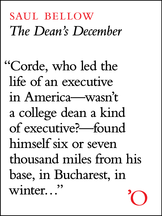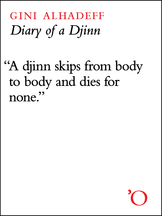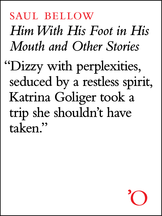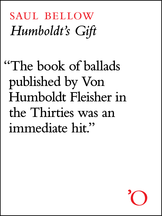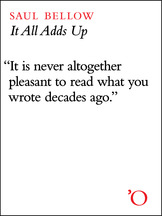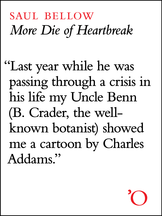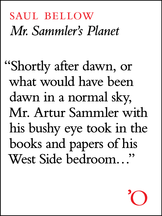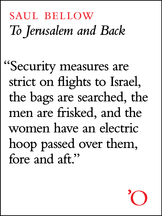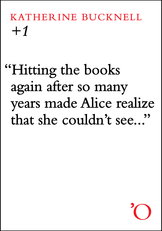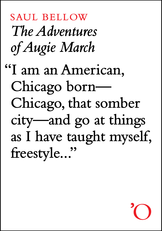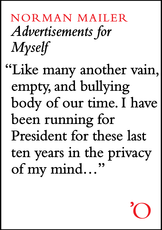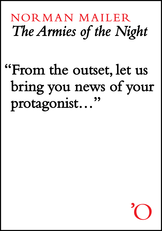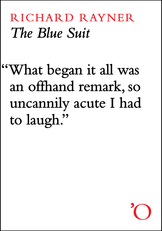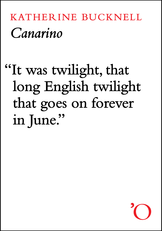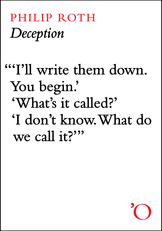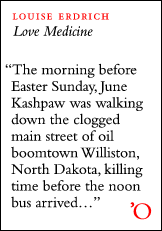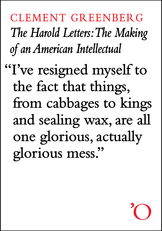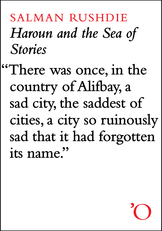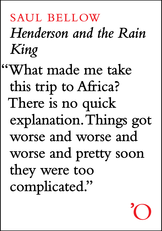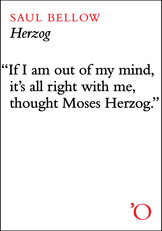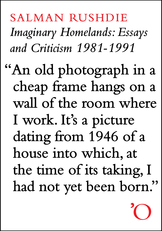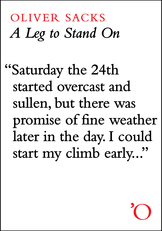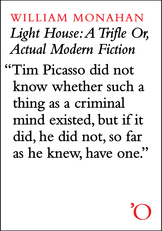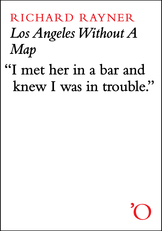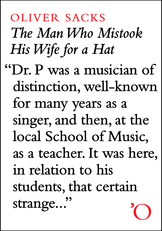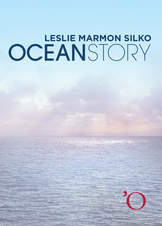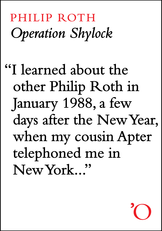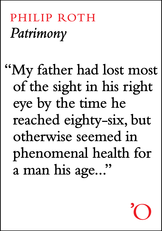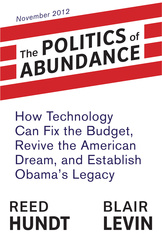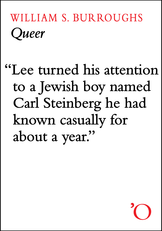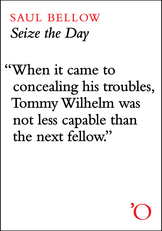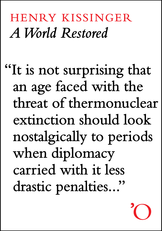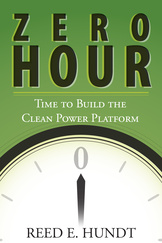Odyssey Editions: E-Book Editions of Modern Classics
The Dean’s December by Saul Bellow
After being widely portrayed as a virulent racist and a traitor to his city, Professor Albert Corde, dean of the faculty of Journalism, is forced to leave Chicago. Corde is ill-equipped to handle the outrage that faces him, both as the author of several articles on Chicago’s endemic corruption, and as an outspoken figure in the controversial trial of two black men charged with killing a white student. Travelling to Bucharest to visit his ailing mother-in-law, he is unable to escape the comparisons in his mind between the corrupt and dehumanizing aspects of the communist regime, and the abandoned streets of his home city. Meditating on the juxtaposition between two distant worlds, and obsessing over events that begin to unfold both in Chicago and Bucharest, he begins to concede defeat.
 |
Diary of a Djinn by Gini Alhadeff
The all-knowing djinn of ancient lore can adopt many forms, but there are times when it chooses the limits of one body, one life. In this bewitching first novel, a djinn takes up residence in a restlessly brilliant woman, guiding her choices in life and love as she chases the satisfaction that eludes her—from a cloistered Florentine boarding school to the glamour of a Milan fashion house to a life beyond her means in 1990s Manhattan. She is as skilled at observing the worlds she moves through as her djinn is skilled at observing her, but an ever-growing self-awareness does not help her to realize her heart’s desires.
 |
Him With His Foot in His Mouth and Other Stories by Saul Bellow
Five of Saul Bellow’s most moving, richly textured, and exquisitely plotted short stories make up this volume, each providing a history of personality and self-awakening. The title story, “Him with His Foot in His Mouth,” follows a musicologist narrator who for years has scattered wounding witticisms “from the depths of my nature, that hoard of strange formulations.” As the story unfolds he tries to discover what led him into a “deep legal-financial hole,” while he awaits extradition from a refuge in British Columbia. “What Kind of Day Did You Have?” follows a divorced suburban woman and her lovers—would-be and actual—through a frantic day in their lives. Their needs and passions, as well as their comic conflicts, are matters of life and death.
 |
Humboldt's Gift by Saul Bellow
With his uncanny wit and perception, Saul Bellow tells the story of Charlie Citrine, a young man whose life is reaching a critical moment. Over several years, Charlie’s almost obsessive love of literature has led him into a deep friendship with the renowned poet Von Humboldt Fleisher, and when Humboldt dies, the young man’s life rapidly begins to unravel. A stalling career and an ugly divorce feed Charlie’s instability, and he engages in dubious friendships and an unwise liaison with the wrong woman. Amidst the chaos of a life in shambles, Charlie emerges by virtue of a legacy left by his departed companion, a legacy that offers him a glimpse of a new trajectory.
 |
It All Adds Up by Saul Bellow
In this collection of more than thirty essays, published in The New York Times, Esquire and The New Republic, the vast range of Saul Bellow’s nonfiction is made abundantly clear. In Bellow’s capable hands, a single essay can range fluidly across topics as various as the talents of President Roosevelt, the economic narrative of Jay Gatsby, and childhood adventures in Chicago. In this rich mix of literary, political, and personal musings, Bellow is able to explore subjects as enormous as the writer’s search for truth, and as minute as the discomforts of a French doctors’ office. Traveling from Washington to Spain to the Sinai Peninsula, and profiling friends and characters such as John Cheever and John Berryman, Bellow is keenly focused and perceptive. These pages, spanning a lifetime of thought and debate, present provocative arguments and erudite literary criticism, all with the wry humor of a great storyteller.
 |
More Die of Heartbreak by Saul Bellow
In More Die of Heartbreak, our erratic narrator explains to his audience that he must abandon Paris for the Midwest. Of course, Kenneth merely wants to be closer to his beloved uncle, the world-famous botanist Benn Crader, to receive the older man’s worldly wisdom. The mercurial Benn, however, struggles to put down roots himself, constantly departing for the forests of India, the mountains of China, the jungles of Brazil, or even the Antarctic. Why does he travel so much? Submerging himself in botanical studies seem insufficient, and he hunts relentlessly for more carnal satisfaction. More Die of Heartbreak has all the humor of a French farce, and all the brooding darkness of a Hitchcock film. From this tragicomedy Bellow unravels a brilliant and sinister examination of contemporary sexuality, asking why even the most noble pursuits often end in mundane disillusionment.
 |
Mr. Sammler's Planet by Saul Bellow
Who is Mr. Sammler? A Jewish intellectual educated in Western philosophy, a one-eyed Holocaust survivor, the future author of the greatest biography ever written of H.G. Wells ... or merely the trusted confidant of countless eccentric New Yorkers, a "registrar of follies"? Through the chaotic streets of the Upper West Side old Artur Sammler paces, meditating on the human condition; attentive to everything and appalled by nothing; haunted by his past, present, and future. His world seems on the brink of apocalypse; both the recent moon landing and the death of his beloved benefactor have him furiously speculating on the end. With his inimitable tragicomic mastery Saul Bellow delves once again, and the reader with him, into a contemporary and chaotic universe in which the most profound reflections on the meaning of life mingle with the absurd, histrionic, endless minutiae of the every day.
 |
The Sun at Midday by Gini Alhadeff
This astonishing memoir is the story of a family who always felt slightly foreign in every country and developed a chameleon-like ability to adapt to their surroundings. Gini Alhadeff was born in Alexandria, Egypt, and grew up in Cairo, Khartoum, Florence, and Tokyo. With a vivid gift for narrative, Alhadeff evokes the languid Alexandria of the early decades of this century (where her mother’s family made its fortune in cotton) and some of its beguiling honorary citizens: a violet-eyed aunt who refused to have new slipcovers made for her sofa so President Nasser would find the old ones when her house was impounded; a cousin who was taught the limits of reason by Wittgenstein at Cambridge and became a monsignor; a gynecologist uncle interned at Auschwitz and then Buchenwald, who lived to tell his tale with stark unsentimentality.
 |
To Jerusalem and Back by Saul Bellow
In 1975, Saul Bellow traveled through Israel, turning his keen powers of observation upon the country he did not know. This book is a record of his stay—his personal experiences and fleeting impressions—and a reflection upon what he ultimately learned about the hallowed land. In Bellow’s signature style, this personal account crackles with wit and controversy on America's relationship with this embattled country, and in a series of vignettes, Bellow captures the opinions, passions, and dreams of Israelis. The varying viewpoints of those he encounters and interviews offer a revealing look at the history and challenges of Israel, and Bellow's passionate storytelling draws listeners in to share in his experience, and dwell upon the Jewish experience in the twentieth century.
 |
+1 by Katherine Bucknell
Shifting in perspective between Alice and Richard, Katherine Bucknell tells a beguiling, ultimately joyful, story. A writer of wisdom, elegance, and wit, Bucknell asks how we create, from day-to-day events, a life that has form, a life that feels whole. +1 is a sparkling, resonant exploration of what it means to love completely and of our limitless, even reckless, need to grow and to change.
 |
The Adventures of Augie March by Saul Bellow
The great novel of the American dream, of “the universal eligibility to be noble,” Saul Bellow’s third book charts the picaresque journey of one schemer, chancer, romantic, and holy fool: Augie March. Awarded the National Book Award in 1953, The Adventures of Augie March remains one of the classics of American literature.
 |
Advertisements for Myself by Norman Mailer
Advertisements for Myself, a diverse and freewheeling tour through Mailer’s early career, covers the many subjects with which he’d grapple for the rest of his life: sex, race, politics, literature, and the systems of power that shape American life. A playful, unclassifiable snapshot of American culture at the end of the fifties, the book is also a cornerstone of Mailer’s long and prolific career: “In this volume,” declared The New York Times in 1959, “Mr. Mailer, at 36, shows once again that he is the most versatile if not the most significant talent of his generation.”
 |
The Armies of the Night by Norman Mailer
Winner of the Pulitzer Prize and the National Book Award and a cornerstone of New Journalism, The Armies of the Night is not only a fascinating foray into that mysterious terrain between novel and history, fiction and nonfiction, but also a key chapter in the autobiography of Norman Mailer—who, in this nonfiction novel, becomes his own great character, letting history in all its complexity speak through him.
 |
The Blue Suit by Richard Rayner
Richard Rayner had a peripatetic childhood, and it seemed he found some sense of place when he attended Cambridge University. The study of philosophy combined with an obsession with books, however, served as the catalyst for a bizarre life of crime. Mounting debts propelled the author into a series of adventures, as he plundered bookstores for elusive first editions, forged checks, and acted as an accomplice in a Keystone Kops-like attempted bank robbery. The Blue Suit is the personal story, both tragic and comic, of an absence of identity and a long checkered past of crimes and misdemeanors.
 |
Canarino by Katherine Bucknell
What price perfection?
David is an American investment banker living in London; Elizabeth, his wife, is a woman of peerless beauty and refinement. They have two children; their marriage seems perfect. Why does she want him to retire and move home to America? One summer evening, David, alone in their empty mansion, receives a phone call from a long-lost friend. So begins a tale about friendship, marriage, and betrayal that is filled with unexpected reversals.
 |
Deception by Philip Roth
“With the lover everyday life recedes,” Roth writes—and exhibiting all his skill as a brilliant observer of human passion, he presents in Deception the tightly enclosed world of adulterous intimacy with a directness that has no equal in American fiction. This chilling and unconventional novel is about the infidelity of language itself, as told through the tender whispers, heated arguments and loaded words of two lovers attempting to escape from their spouses, their histories and themselves.
 |
Love Medicine by Louise Erdrich
Told from the multiple perspectives of two Ojibwe families, Love Medicine gives voice to the blessings and the burdens of kinship. Erdrich introduces the Kashpaws and the Lamartines – men and women whose lives are a testament to the endurance of a people and the sorrows of history. Love Medicine is the first of Louise Erdrich's polysymphonic novels set in North Dakota – a landscape that, in Erdrich's hands, has become as iconic as William Faulkner's Yoknapatawpha County.
 |
The Harold Letters by Clement Greenberg
In The Harold Letters, Janice Van Horne, Clement Greenberg’s widow, has gathered together Greenberg’s letters as a young man to his then friend and confidant, Harold Lazarus. Spanning fifteen years, this collection of letters intimately chronicles the development of Greenberg’s taste and ideas. The Harold Letters is frequently funny and always candid, revealing the young Greenberg’s passion, ambition, and intellectualism that would lead to his future status as the greatest art critic of the twentieth century.
 |
Haroun and the Sea of Stories by Salman Rushdie
When Haroun Khalifa’s father, the renowned storyteller Rashid Khalifa, loses his gift of gab, Haroun knows he has to help. Soon, he’s tumbled headfirst into an adventure story of his own, journeying toward the legendary Sea of Stories on the back of a flying Hoopoe bird. There, he finds a host of comical, unforgettable new friends, from Iff the Water Genie to Blabbermouth the page, and at the end of his quest, a formidable enemy—the Prince of Silence, Khattam-Shud himself. At once vastly humorous and deeply tender, Haroun and the Sea of Stories is a fantastical, witty contemporary fable and a powerful statement about the importance of storytelling. Salman Rushdie has created an instant classic—a dazzling read for children and adults alike that both celebrates and embodies the magic of fiction.
 |
Henderson the Rain King by Saul Bellow
The most exuberant and funny of all Bellow’s novels, Henderson the Rain King remained the author’s personal favorite. Its outsized hero, Eugene Henderson, a mountain of a man, a millionaire, the father of many, remains adrift. Aggrieved, worn-out, all but defeated he longs to set things straight. Following the promptings of his unforgettable inner voice—“I want, I want, I want”—our hero finds himself in Africa.
 |
Herzog by Saul Bellow
Moses E. Herzog, the protagonist of Saul Bellow’s Herzog, finds himself in a pickle. He may be handsome, witty and wise, but his wife has just taken off with his best friend, and he is without resources to face his troubles. What is an academic to do when his personal life turns to chaos?
 |
Imaginary Homelands by Salman Rushdie
In Imaginary Homelands, Salman Rushdie presents ten years’ worth of concentrated thought on topics from the most cherished literary traditions and authors of India, Europe, and America to the politics of oppression, the joy of film and television, and the enduring value of the imagination. Writing with lively and intelligent insight—from the provocative, to the humorous, to the deeply profound—Rushdie demonstrates why he is celebrated as one of our greatest literary minds.
 |
A Leg to Stand On by Oliver Sacks
Oliver Sacks is internationally renowned for his compassionate approach to patients affected by profound neurological disorders. Yet when an accident on an uninhabited mountain in Norway leaves Dr. Sacks with a severe leg injury, he becomes the patient. During what should have been a routine recovery period, he experiences an overwhelming sensation that his injured leg is now absent from his body, and indeed from his physical awareness. In A Leg To Stand On, one of Dr. Sacks’ most personal works, this disturbing experience is the starting point of a fascinating journey through the mysteries of perception, the physical substance of our identities, and the experience of being a patient.
 |
Light House by William Monahan
A hilarious farce, in which a coastal New England hotel, the reader's expectations, and possibly The Novel itself, are turned inside out by an outrageous cast of characters, a mutinous Author, and the onset of a disastrous storm.
 |
Los Angeles Without a Map by Richard Rayner
Barbara, a Playboy bunny, is delectable. Richard loves her. He abandons his life in London, a steady girlfriend, and a job, and flies to Los Angeles in search of Barbara and the romanticized America he's seen only in the movies.
 |
The Man Who Mistook His Wife for a Hat by Oliver Sacks
The Man Who Mistook His Wife for a Hat brings together twenty-four of Oliver Sacks’s most fascinating and beloved case studies. The patients in these pages are confronted with almost inconceivably strange neurological disorders; in Sacks’s telling, their stories are a profound testament to the adaptability of the human brain and the resilience of the human spirit.
 |
Ocean Story by Leslie Marmon Silko
A new novella from the acclaimed author of Ceremony and Almanac of the Dead.
 |
Operation Shylock by Philip Roth
What if a lookalike stranger stole your name, usurped your biography and went around the world pretending to be you? In this tour de force of fact and fiction, Philip Roth meets a man who may or may not be Philip Roth. Because someone with that name has been touring the State of Israel, promoting a bizarre exodus in reverse of the Jews. Roth decides to stop him—even if that means impersonating his impersonator. Suspenseful, hilarious, hugely impassioned, pulsing with intelligence and narrative energy, Operation Shylock is at once a spy story, a political thriller, a meditation on identity, and a confession.
 |
Patrimony by Philip Roth
Patrimony, a true story, touches the emotions as strongly as anything Philip Roth has ever written. Roth watches as his eight-six-year-old father—famous for his vigor, his charm, and his repertoire of Newark recollections—battles with the brain tumor that will kill him. The son, full of love, anxiety, and dread, accompanies his father through each fearful stage of his final ordeal, and, as he does so, discloses the survivalist tenacity that has distinguished his father’s long, stubborn engagement with life.
 |
The Politics of Abundance by Reed Hundt
The exploding pace of technological change today offers America opportunities to reduce our debt, grow our economy, and cement America as the most innovative and advanced nation on Earth. These solutions could be faster, better, cheaper and lasting—if the post-election government can agree on a growth strategy as well as a sensible budget policy. In The Politics of Abundance: How Technology Can Fix the Budget, Revive the American Dream, and Establish Obama’s Legacy, Reed Hundt and Blair Levin offer strategies that use private investment to rebuild America’s vital knowledge and power infrastructure in this country.
 |
Queer by William S. Burroughs
Set in Mexico City during the early 1950s, Queer follows William Lee's hopeless pursuit of desire from bar to bar in the American expatriate scene. As Lee breaks down, the trademark Burroughsian voice emerges, a maniacal mix of self-lacerating humor and the Ugly American at his ugliest. Originally written in 1952 but not published until 1985, Queer is an enigma—both an unflinching autobiographical self-portrait and a coruscatingly political novel, Burroughs' only realist love story and a montage of comic-grotesque fantasies that paved the way for his masterpiece, Naked Lunch.
 |
Seize the Day by Saul Bellow
Seize the day. Be in the present. Grasp the hour, the moment, the instant. This is the dubious advice given by outlandish Dr. Tamkin—part psychologist, part stockbroker—to poor Tommy Wilhelm. Unemployed, at the whim of his ex-wife and two children, and hurt by his proud and callous father, Wilhelm is disgusted with himself, yet forever hopeful that his suffering is purposeful. When he decides to entrust the last of his money to a mysterious commodities venture with Dr. Tamkin, he unwittingly sets in motion the most eventful day of his life. The journey that follows takes him across the length of New York City, from his hotel room at the Gloriana to the floor of the stock exchange, bringing him ever closer to "his heart's ultimate need."
 |
A World Restored by Henry Kissinger
The Napoleonic Wars were followed by an almost unprecedented century of political stability. A World Restored shows how Europe reestablished a peaceful order in the wake of Napoleon's disruption of the European balance of power. Part political biography, part diplomatic history, A World Restored analyzes the alliances formed and treaties signed by the world's leaders during the years 1812 to 1822, focusing on the two main negotiators: Viscount Castlereagh, the British foreign secretary, and Prince von Metternich, Austria's foreign minister. Henry Kissinger explains how the turbulent relationship between these two men, the differing concerns of their respective countries, and the changing nature of diplomacy influenced the final shape of the new international order.
 |
Zero Hour by Reed Hundt
Modern life rests on two electromagnetic wave platforms: knowledge and power. The power platform is where the knowledge platform was in 1993. Emanating from the United States, digital mobile and Internet networks wrapped around the world, changing societies and economies in just a few years. The hundreds of millions of dollars invested in the American move to the new knowledge platform meant for the Clinton Administration that everything supposed to go up (labor force participation, income, productivity), went up. Everything supposed to go down (unemployment, cost of capital), went down. ...
 |

